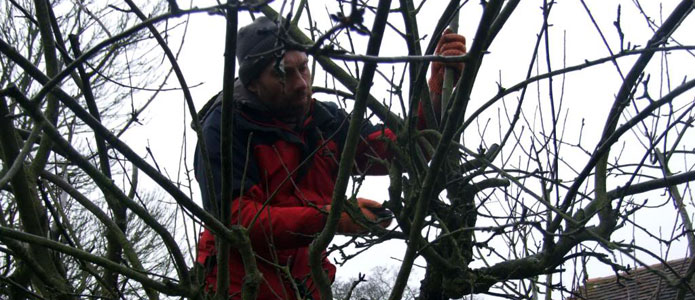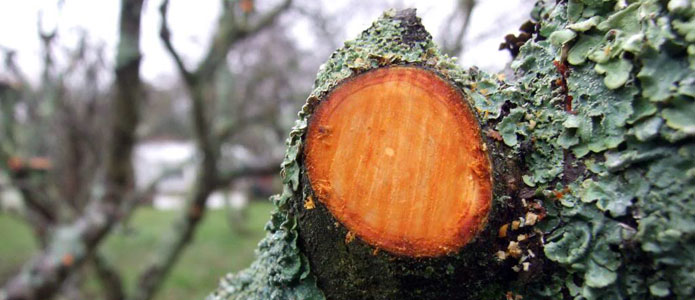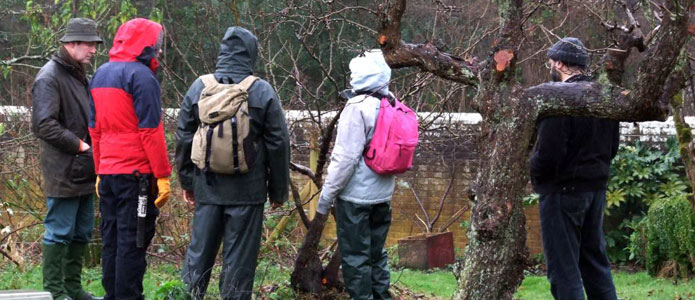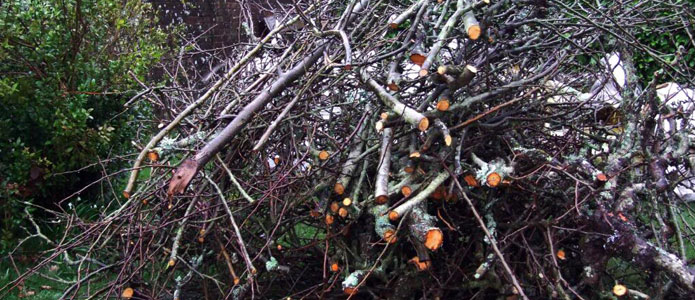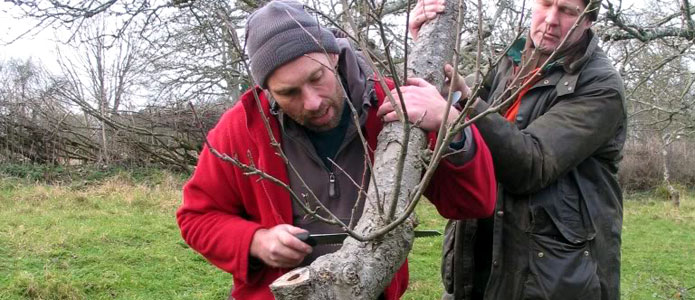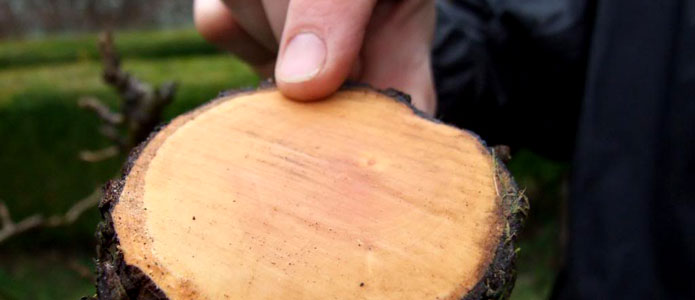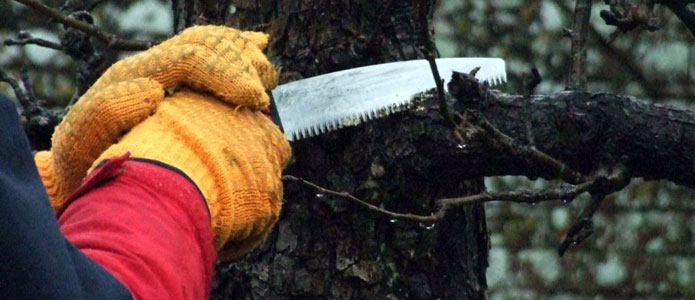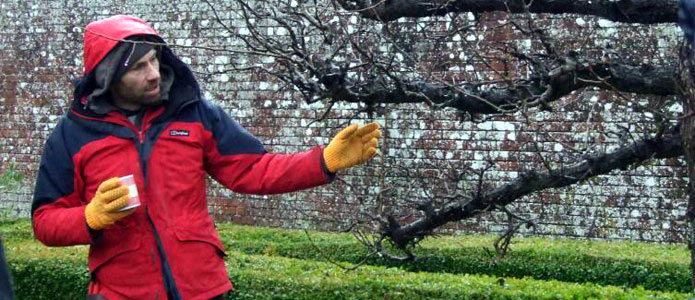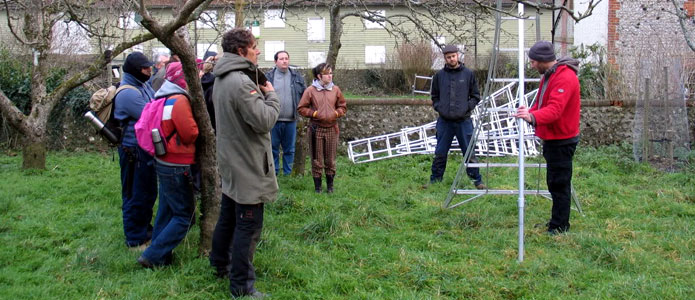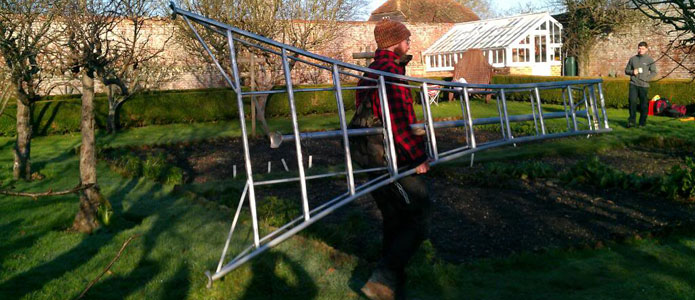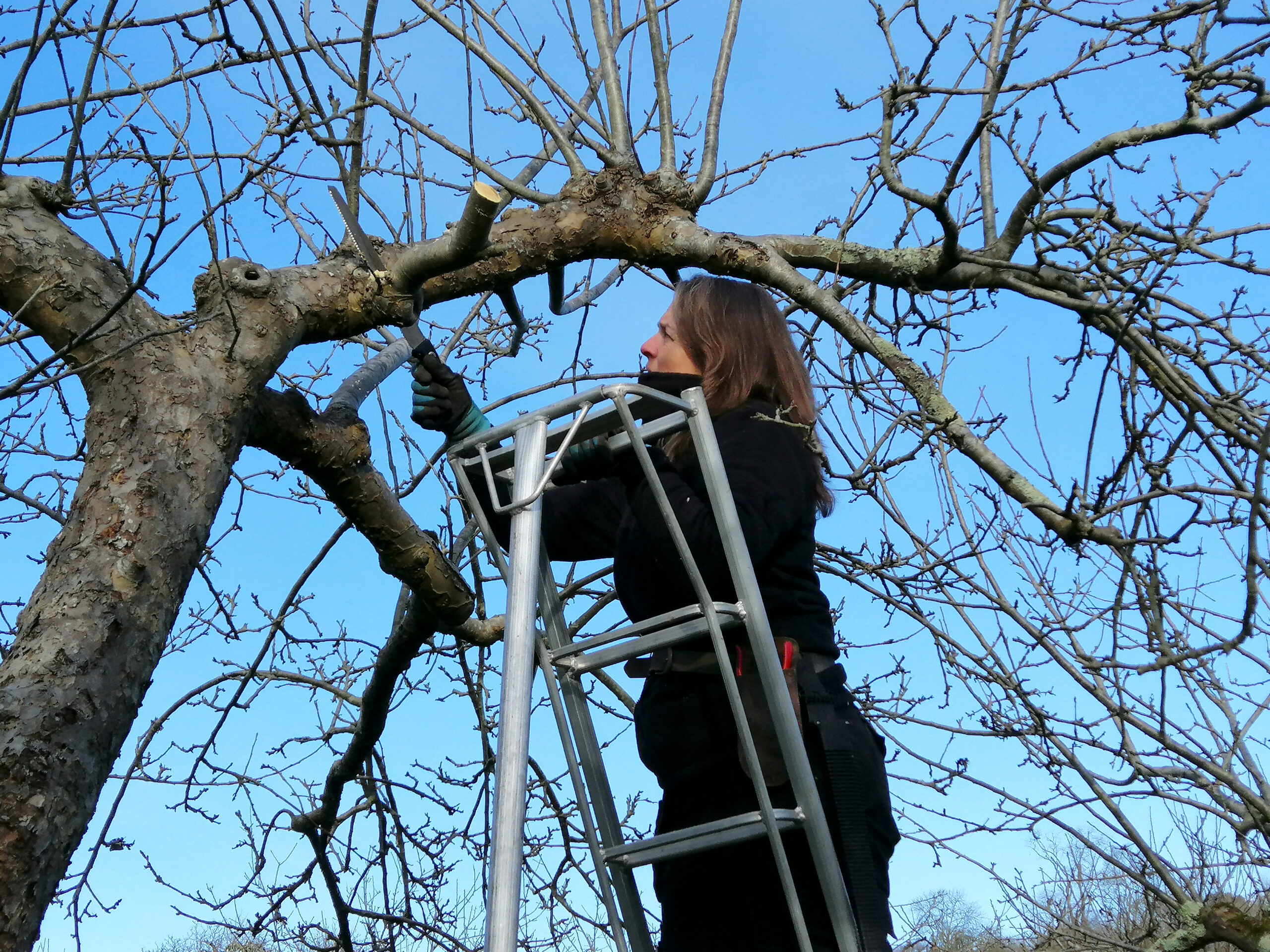
Learn how to improve the health and productivity of old fruit trees by appropriate pruning. Skills learnt will also be applicable for pruning younger fruit trees and other trees/shrubs.
Dates and location
17, 24 and 25 January 2026
Day 1: Virtual class via Zoom 11am – 1pm and 2pm – 4pm
Day 2 & 3: Outdoor practical 11am – 3.30pm in Stanmer Park, Brighton
What will the Pruning old fruit trees course cover?
The course will provide participants with practical skills through hands-on experience of renovation and ongoing pruning of old apple trees. These skills are essential to anyone caring for mature fruit trees, but the expertise to carry out this work is not very widespread or accessible. Fruit trees that are not properly cared for often become unproductive and diseased, frequently causing them to die prematurely. Many of the techniques learned will have applications in the care of younger and newly-planted fruit trees, and other trees and shrubs.
Who is the course for?
This course is open to anyone aged 16 or over. No prior knowledge of pruning is needed. However, due to its specialist nature, it will be of interest to experienced gardeners and professionals as well as the complete novice. It is a practically based course. Participants should be willing and consider themselves physically able to ‘have a go’. Most participants are likely to want to use ladders to gain access to taller trees, but access to some of the smaller trees is feasible without leaving the ground. You must also be willing to spend most of the weekend outdoors.
Learning methods and outcomes
A discussion about what participants want from the course will be followed by brief theory sessions and practical demonstrations. However, the majority of the course will be devoted to practical hands-on experience with guidance from the tutor. By the end of the course participants will have the practical skills necessary to carry out renovation pruning of old fruit trees without supervision.
What does this course lead on to?
This short specialist course is not accredited. It does not lead on directly to any other courses but should provide a taster for those interested in progressing to work or courses in silviculture or horticulture.
Course tutor
Tuition will be led by Bryn Thomas, an experienced tutor/trainer who has been pruning old and neglected fruit trees professionally since 1996. Bryn will be joined by Stephan Gehrels from our orchards team to guide people in there pruning practice. Stephan has been teaching for many years and is passionate about permaculture. You may also be supported in your pruning practice by one or more members of the Brighton Permaculture Trust team.
As featured in The Guardian Guide
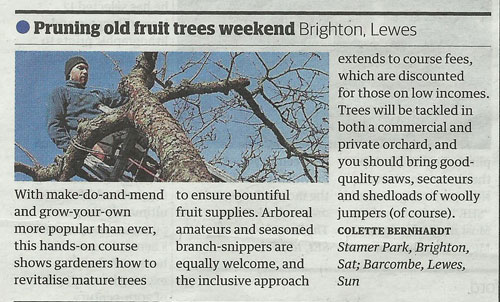
Venues/Accommodation
Day 1: Virtual class via Zoom.
Days 2 & 3: Stanmer Park (near University of Sussex), Brighton, Sussex. Get directions to Stanmer Park.
If you intend to book accommodation, please check availability before booking a place, as accommodation in Brighton can be hard to find.
Get details on local accommodation and Brighton Permaculture Trust supporters who can provide accommodation in their homes.
Tools
We would strongly advise that anyone who intends to prune trees should have good tools. Poorer tools are a false economy; they are harder work, give inferior results and do not last. Please bring your own tools if you have them but we do have a small supply of tools to lend to people on the course. We recommend the following tools, which are not available from the shops and are best bought well in advance:
- A good quality pair of secateurs – we recommend Felco secateurs, model number 8 is Bryn’s favourite, but model numbers 4 and 5 are good and are cheaper (left-handed people should buy model number 9). A leather holster is also recommended.
- A good quality pruning saw – we recommend Silky saws. The Gomtaro 300 models are most universally useful and come with a holder that attaches to your belt, making them safer to carry when not in use, especially up ladders where the saw can easily be accessed with one hand while the other hand holds the ladder. The fine toothed blades (13 teeth per inch) make better quality cuts than the large toothed ones (8 teeth per inch) but are a little slower to use; replacement blades are available. http://www.silkyfox.co.uk/gomtaro-fine.php
Recommended reading
This book is recommended but it is not necessary for those attending to buy/read it.
RHS Pruning and Training, Christopher Brickell and David Joyce (Also available elsewhere)
Fees
Fees include tuition, refreshments, handouts and information sheets.
- £247.50 – Sponsored/organisation rate
- £247.50 – Individual income more than 25k/yr
- £200 – Individual income 18-25k/yr
- £152.50 – Individual income less than 18k/yr
- £84 – Individual, concessionary rate (check eligibility)*
* Concessionary places are limited. If places are not available check back two weeks before the course/event as more may be available then.
We endeavour to make our courses and events affordable to all. Unfortunately, we do not receive any external funding for most of these and rely on large amounts of voluntary input.
See the cancellations and refunds policy.
Booking Pruning old fruit trees
Booking is essential, as most of our courses/events are fully booked weeks in advance. However, if places are still available, then bookings can be made until midday the day before the course/event. A place is not secured until we have received the requested payment.
If you have completed the booking process but you haven’t received a confirmation email from us please contact us to check your booking has gone through.
If you are booking within two weeks of the event, or the event is nearly full, you will not have the option to pay by cheque or BACS. Instead, you will need to pay immediately using a credit/debit card or PayPal.
